As a student, Rev Dr Kate Coleman was open to all kinds of religions…but not Christianity. Being inexplicably drawn to Jesus took her by surprise
Kate Coleman never intended to blaze a trail, yet her ministry has been marked by firsts: in 1996 she became the first Black female minister in the Baptist Union, and was later appointed the denomination’s first Black female president. She was also the first Black female chair of the Evangelical Alliance Council and has been recognised as one of the top 25 female racial justice champions in Britain and Ireland.
When she was first asked to be a church elder (itself a miraculous event as her church was, up until that point, not supportive of women leaders) she was wary of saying yes. She knew God had called her, but was understandably reluctant to be the cause of a potential church spilt. She describes the fallout as “a baptism of fire”.
Three decades on, she’s written books, started a leadership consultancy and is still pioneering new ways to equip and resource female leaders around the world. No doubt there are plenty more firsts still to follow.
How did you come to faith?
I had gone to a Church of England school and, unfortunately, was thoroughly inoculated against Christianity as a result.
I was looking into all sorts of stuff at university – African spiritualties, Islam – but I really was not up for the Christian thing. So I was really surprised when I got apprehended by God.
I was doing my best to avoid religious people, particularly Christians, but then I discovered my roommate was a Christian, the person I was going to lectures with was a Christian and a number of people I’d made friends with in halls were Christians…I had few friends who weren’t Christians!
A friend invited me to hear his band play at church. At the end of the set, they asked everyone to close their eyes. He said: “If anyone wants to know more about Jesus, raise your hand.” I remember thinking: I am never going to do that, but then I felt hot and cold, and I realised my hand was in the air! At that moment, it was like: Just stop saying no to God.
It was a total life change. I started getting serious about who God was. I realised his people are sometimes well behaved and sometimes not, but that doesn’t change who he is. My allegiance is to Jesus, and that’s served me well over the years. The Church doesn’t always do the right thing, but Jesus remains the same.
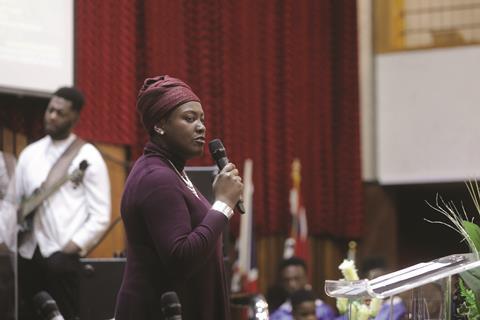
What was it about school that put you off God?
I think it was the sense of the institutionalisation of faith. Jesus felt like he was way out there somewhere, and looked a certain way. For me, a white Jesus was not a positive thing. Faith was packaged a certain way, and none of that really resonated. There was an incredible degree of hypocrisy. The Christians I met really didn’t do a great job of reflecting who Jesus was.
Did those early experiences inspire you to go into church leadership and work for change?
Absolutely. I’m a big believer that our pains and processes shape who we become and what we do. God doesn’t waste any of that stuff. All of that experience helped me [identify] the nature of my calling.
When you first felt called into church leadership, you were in a church that did not support female leaders. How was that resolved?
That’s a great question. As you said, I came from a church that didn’t believe in women in leadership, and neither did I, because that’s what I’d been taught. But I had gone on a retreat, and God spoke to me really clearly about leadership. So [I thought]: OK, if this is God, then God is going to have to make this happen. And, of course, it did – much to the surprise of everybody!
At around the same time, God was speaking to the overseer of our church. One evening he came and said: “God has really rebuked me over women’s leadership.” You couldn’t write it! I’m standing there thinking: Well, this is a turn up. Then he said: “I want to appoint four elders, and Kate is going to be one of them.” The church went into a huge meltdown. I said to him afterwards: “I will not be the cause of a split in this church.” He said: “God has already spoken to you, I think. You don’t have the luxury of saying no to God.”
It was a baptism of fire, but I remembered what the overseer said, so I leaned into that and dealt with all of the bad behaviour. Very good friends surprised me with their attitudes. People left. It was a shock.
As a leader, when you’re dealing with bad behaviour within the Church, how do you do it in a way that is loving and sets a good example?
The bar for leaders is different, we see that in the biblical text. Having to watch ourselves, our own hearts, and having to take our own advice, that’s part of the calling. Leadership is about setting that example. It’s not always easy to do – we’re human beings at the end of the day – but that is part of the terrain.
Church contexts are places where people feel utter abandon with bad behaviour. Stuff they wouldn’t do in their work environments or with their own families, they will do in church! Some of that is understandable; it’s the place where Jesus loves us regardless of who or what we are, but some of the worst stuff comes out.
As a leader, you’re trying to show people another way, and help them to become everything God is calling them to become – which means you have to do your own growing, and become everything God is calling you to be. It’s tough, but that’s what it means to lead.
The Church doesn’t always do the right thing, but Jesus remains the same
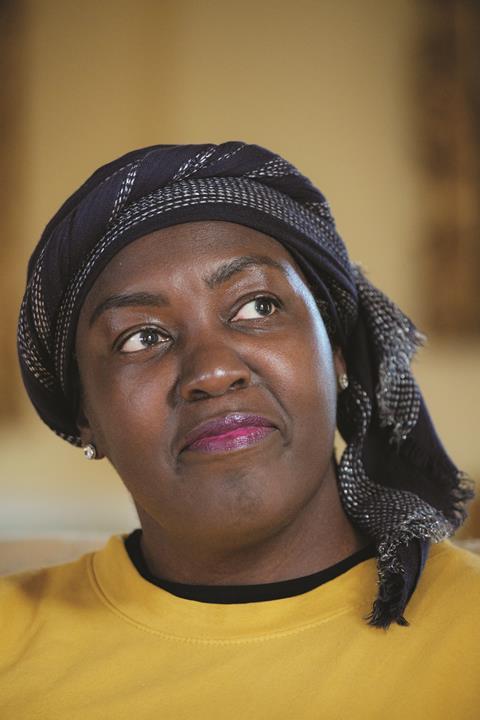
You wrote a book, 7 Deadly Sins of Women in Leadership: Overcome self-defeating behaviour in work and ministry (Zondervan), which I’ve heard you describe as the book you wish you’d had when you were starting out. What behaviour was the one you found most difficult to overcome?
Just one? [Laughs] Probably how I perceived myself as a leader. Some of that was because I’d absorbed all the messages about women in leadership: Can I do this? Am I up to this? Should I be in this space? The challenge was to see myself through [God’s] eyes, and not through the eyes of other people who didn’t feel that I should be in that space, or felt that I should be a particular kind of leader.
Have we made progress within the Church or wider society when it comes to women in leadership?
In terms of the business world and public sector, there are some shifts, but what hasn’t changed are the cultures of organisations. They are still very masculine and, often, unhealthy – even for most men. People are expected to live and lead as if we have nobody else in our lives – as if we don’t have children, parents or anything like that.
Within the Church, there’s been a shift – certainly within some of the charismatic and Pentecostal groups. Some have tried to find a middle way – you know, instead of the egalitarian or complementarian thing, they’re saying: “We’re egalitarian complementarians.” Maintaining a stance that women are incapable, not gifted or not called is virtually impossible. In many countries that haven’t been influenced by Western theologies, when the Spirit is just left to move, it’s the women who rise up to lead – in Iran, in the underground churches in China, etc – you have to be pretty arrogant to say that’s not the Holy Spirit at work. And if it is the Holy Spirit, maybe we should question our theology, rather than how God chooses to do it.
Do you think some church scandals may have been avoided if we’d had a better mix of men and women leading?
Absolutely, 100 per cent. Some of the stuff we’ve seen over recent years has, without doubt, emerged because leadership has been [not only male, but] a certain kind of male too.
In some ways, it’s really sad that we’ve had to go through this stuff to see that. I think God is very, very gracious to us. God doesn’t work with us because we get things right. Don’t think that because your church is this, that or the other, that’s why God is working. God works with us because he loves us, in spite of and because of who we are, what we are and what we’re capable of. But he still has things he wants to see happen in his Church.
People are becoming more and more cynical about church leadership, unfortunately. We need to lead differently. I think God is already doing it. The question is whether we will say yes to God, or whether we will insist on our own way of doing things.
A church leader is often expected to be a great communicator, a kind pastor, to organise the rotas and do everything in-between. It must be incredibly hard not to lose sight of your primary gifting, or burn out completely, especially post-Covid. In your work with Next Leadership, what challenges are you seeing right now?
One of the big things is the sense of fatigue post-Covid. We’re not out of that. I’m seeing those who are wanting to head back to the way things were, and those who are burned out, or feeling very low about their ministry, who saw a lot of attrition during [Covid].
And then there’s those who have made a bit of a shift. There’s still fatigue, but they’re realising something different is needed. They’re drawing in a more diverse leadership, beginning to lean on people in a healthier way and they’re seeing growth.
The Church as it was is no longer going to cut it. Let’s not be surprised at that because, actually, that’s what God has always done. God is not invested in denominations, he is invested in his mission. If we say yes, we get carried along with that. If we say: “We prefer this shape and size, we prefer this approach” – that’s the stuff that falls away. God is very happy to change his personnel. The journey through the wilderness should remind us of that.
After 35 years in leadership, where do you feel God is calling you to next, and how do you discern that?
One of the disciplines that I’m committed to is prayer and fasting. I regularly take time to do that. Then there are points where I step back and ask: Am I still on track? Is this what I’m supposed to be doing? I know it needs to be done. But do I need to do it? I had some amazing advice from one of my first mentors. He said: “Kate, you’re gifted in lots of areas, but go where you’re really needed.” So, for me, that’s the question I’m asking myself at the moment. Particularly after the last season, because that was crazy for all sorts of reasons, with the huge questions around race, and then around sex as well. It has been a really challenging time.
It does feel like it has been a real season of reckoning for the Church, with abuse scandals, internal disagreements about sexuality, George Floyd, Covid-19…What one thing would you change to make Church culture healthier?
Wow. You want me to narrow it to one thing…
OK, what would be your one prayer for the Church, going forward?
My prayer would be that we reimagine the Church – because then I don’t have to choose between any of those things! We could reimagine ourselves following Jesus more closely, less concerned about celebrity, less concerned about some of the things that we’ve taken as theological orthodoxy in some regards.
In the next season, world Christianity is going to be huge, and leaders who have never looked into some of the theologies coming from other parts of the world will be way behind in terms of their understanding. We live on a planet of 7 billion people, and we’re all different. If that was God’s intention, we have to figure out a way of living together.
I think the Church has the answers, but we’ve spent a lot of time getting caught up with other stuff and losing sight of what we could be – the salt and light. We’ve got to stay in step with the Spirit. We’ve got to be prepared to go where other people aren’t yet ready to go. That’s pioneering; that’s the stuff I resonate with.
To hear the full interview listen to Premier Christian Radio at 8pm on Saturday 18 November or download ‘The Profile’ podcast. Listen at premier.plus













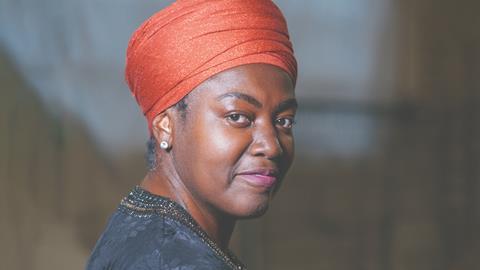

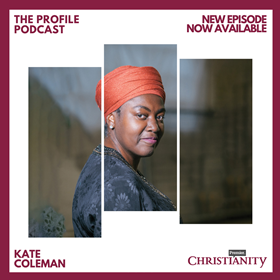

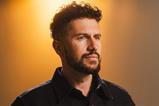






















No comments yet